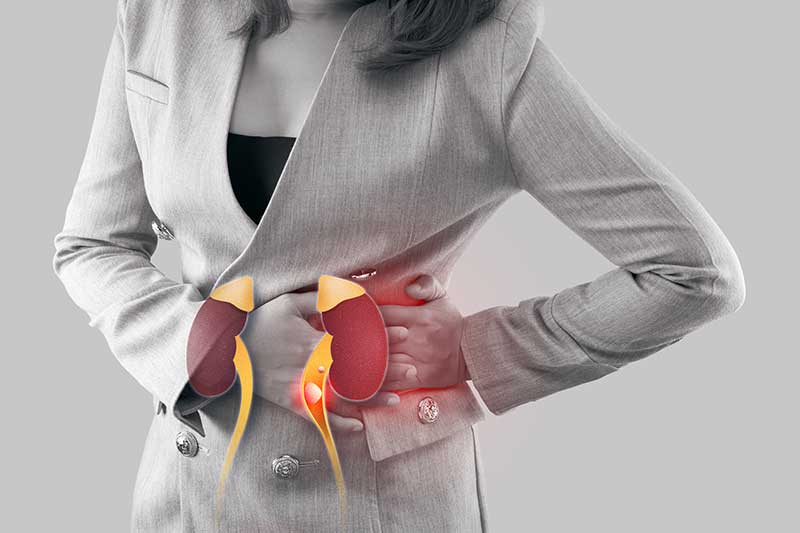Even though kidney stones are tiny in size, they can cause excruciating pain and discomfort. Tiny mineral crystals can form in the kidneys and travel through the urinary tract, causing agony often compared to that of childbirth. The good news is that with the proper knowledge and strategies, you can overcome kidney stones and reduce your risk of future occurrences. In this guide, we will examine the causes, symptoms, treatment options, and effective prevention strategies that will empower you to take charge of your kidney health.
Understanding Renal calculi
Kidney stones are solid deposits that form in the kidneys when the minerals and salts in urine crystallize and agglomerate. Kidney stones can range in size from as small as a sand particle to as large as a marble. If left untreated, these stones can block the passage of urine, causing severe pain and potential complications.
Causes and Effects
Dehydration, a diet high in specific minerals, a family history, and certain medical conditions can increase the likelihood of developing kidney stones. Kidney stone symptoms may include intense pain in the back, side, or lower abdomen, nausea, vomiting, and blood in the urine. If you suspect you have kidney stones, you should seek medical attention for a proper diagnosis.
Therapeutic Options
- Discomfort Management: Pain medications and anti-inflammatory drugs may provide relief for kidney stone discomfort.
- Hydration is essential for flushing out kidney stones and preventing the formation of new ones.
- Depending on the type of stone, your physician may prescribe medication to dissolve or prevent stone formation.
- This noninvasive procedure utilizes shock waves to fragment larger stones into smaller fragments, making them simpler to pass.
- Surgical intervention may be required for larger stones that cannot pass on their own.
Prevention Methods
- Aim to consume sufficient water throughout the day to dilute your urine and prevent crystal formation.
- Reduce your consumption of high-oxalate (spinach, beetroot, and chocolate) and high-sodium foods. Moderation is crucial.
- Calcium Intake: Consume an adequate quantity of calcium through your diet or dietary supplements to prevent the accumulation of excess calcium in your urine.
- Reduce Animal Proteins: A high intake of animal protein can increase uric acid levels, which increases the risk of developing certain types of stones.
- Lifestyle Selections: Maintain a healthy weight, engage in regular exercise, and manage your tension, as obesity and stress can contribute to the formation of kidney stones.
- Routine Checkups: If you have had kidney stones in the past, regular checkups can help you monitor your kidney health and detect potential problems early on.
The conclusion
Defeating kidney stones necessitates a multifaceted strategy that combines a comprehension of their causes, the pursuit of appropriate medical treatment when necessary, and the implementation of effective prevention strategies. You can significantly reduce your risk of kidney stone recurrence and take charge of your kidney health by remaining hydrated, making wise dietary decisions, and adopting a healthy lifestyle. Remember that knowledge is power, and armed with the proper information, you can overcome kidney stones and live a life free from their painful grasp.



